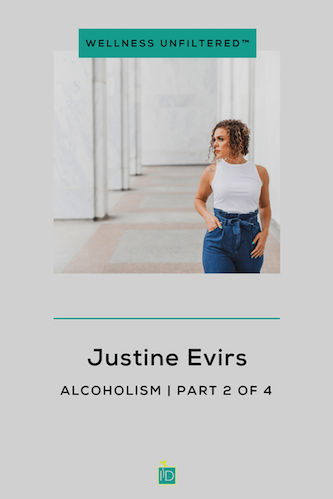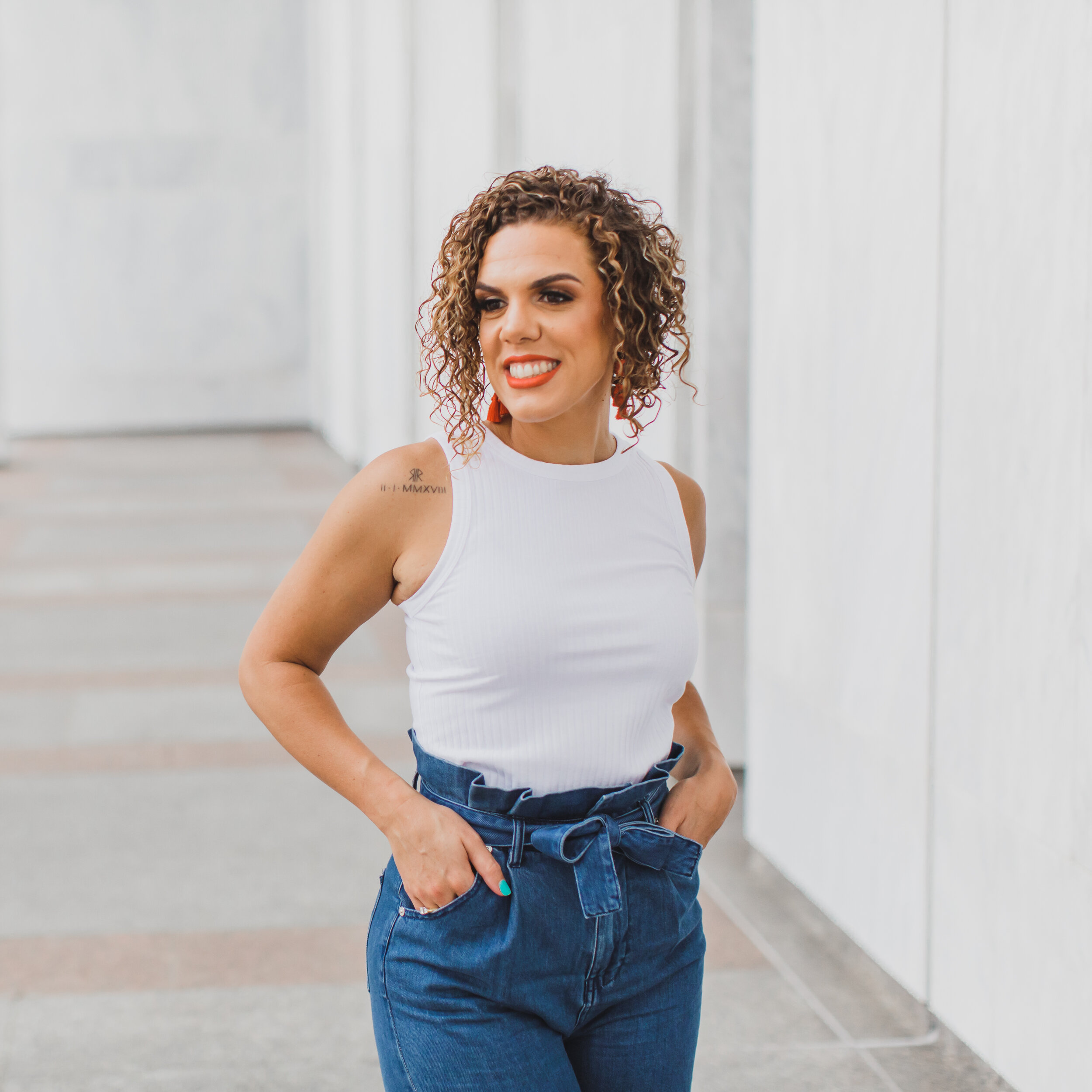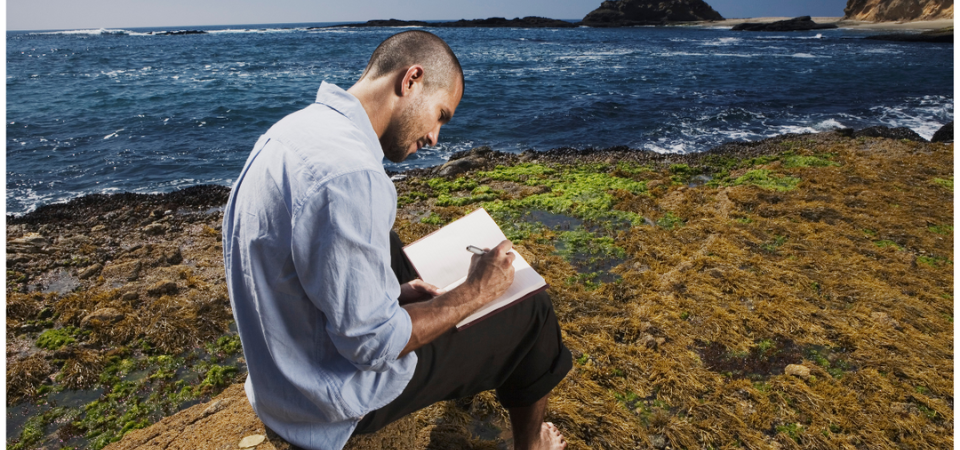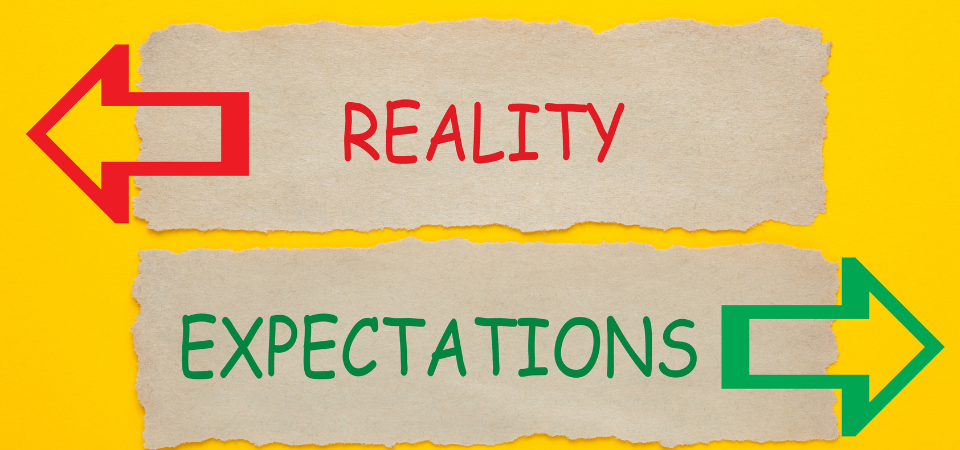The Real Life Spouse Stories Series is part of our Wellness Unfiltered™ program. It’s a platform for military spouses to share their struggles with tougher wellness topics in a Facebook Live series. They’re sharing these stories to help with their healing, open up conversations so other military spouses know that they aren’t alone, provide resources to people struggling with something similar, and to help the community know how to better help others who are going through difficult wellness issues. Below is an excerpt of Justine’s feature.
Justine Evirs
>
“Stage 2 for me involved a lot of rules around drinking—things like trying to only drink on weekends, sticking to light beer, trying to work out more so I could justify drinking more, and even trying to quit cold turkey.”
Justine Evirs is a social entrepreneur and visionary who is focused on creating change in a digital world for underrepresented populations. As a Navy veteran, Navy spouse, and first generation college graduate, she is proud of the work she has accomplished in an eight-year higher education career. During that time she was well known for her ability to build innovative programs and her unique servant leadership style.
Click on image for Facebook Live interview about Stage 2 alcoholism with Justine Evirs and Kimberly Bacso
This is part two of my four-part series covering the four stages of alcoholism. My intention is to share my story, some things that I have learned along the way, and some helpful resources. If I can help one person, sharing my story will be worth it. Alcoholism among military spouses is something we need to talk more about.
It you didn’t catch my Stage 1 blog post and Facebook Live, that’s a great place to begin before jumping into my Stage 2 story. One of the biggest red flags from Stage 1 was my inability to get through a stressful situation without drinking.
What happens in Stage 2?
According to alcohol.org, Stage 2 is the early alcoholic stage. Characteristics of this stage include suffering your first alcohol-related blackout, becoming uncomfortable with drinking but being unable to resist it, lying about drinking, and hiding drinks. Your tolerance to alcohol grows.
Why do you think Stage 2 is the most dangerous stage?
For me personally, in hindsight, I feel like this stage lasted the longest. Out of a twenty-one year drinking career, I think I lived in this stage for ten to fifteen years. As I reflect back on my time in this stage, I feel like I can see the progression of the disease so clearly now, but when I was in it, it just seemed normal to me. Over time, I can now see exactly when I started to grow uncomfortable with drinking and developed an inability to resist drinking more and more.
When did you suffer your first alcohol related blackout?
The first time I drank. I remember it so clearly. I was thirteen and I decided to take shots of gin with my friends for no reason. I never stopped . . . I just kept going. I loved it that much from day one. I never understood why I got sick that day. It never registered in my brain that I needed to drink in moderation or quit drinking after one or two drinks.
Does alcoholism run in your family?
Yes, on both sides. My parents can drink safely, but just about everyone else in my family struggles with being able to drink in moderation. Between family and friends, I don’t think I ever had a role model for responsible drinking, so I just thought what I saw on TV and in my neighborhood was normal.
When did you realize that you drank differently from everyone else?
I would say my early twenties is when I started to notice a difference. Before that I was just drinking to fit in and have fun. I noticed in my very early twenties that I never wanted the party to end and my inability to resist grew stronger and stronger.
What did a classic Stage 2 day look like for you?
I thought it looked pretty normal because I was so high functioning and still accomplishing so much on a day-to-day basis. I also don’t think I was spending every single day drinking like a “stereotypical alcoholic” and to be honest that stereotype kept me from realizing that I was headed down the wrong path because I would justify that I was just fine and that I was in control.
Stage 2 for me involved a lot of rules around drinking—things like trying to only drink on weekends, sticking to light beer, trying to work out more so I could justify drinking more, and even trying to quit cold turkey. None of it worked for a long period of time so I would fail over and over and then my self-worth and self-esteem would go down further into the drain and then the addiction would rear its ugly head once again.
How did you arrange your life around drinking?
I only wanted to hang out with people who drank like me. I used drinking as a social networking tool and hid behind a mask of anxiety and low self-worth. I arranged my personal and professional life to “be fun” and innovative but only people that drank like me were my “real friends.”
I now know how superficial I was and in hindsight realize we really weren’t bonding. It was instant gratification that quickly went away the following morning. This is when things started to get dangerous because I began to fill the void with more alcohol the next day and start the vicious cycle of addiction all over again.
Would you agree that willpower played a big part in your starts and stops during this stage?
Yes, 100 percent. In Stage 1, I was using alcohol to manage my stress, so by this point I couldn’t see any other way. I just remember telling myself that I needed to be stronger and power through these problems. The thought of having a physical dependence on alcohol never crossed my mind.
Would you have been willing to accept your alcoholism and admit that you needed help at this point if someone said something to you?
Unfortunately no because my issues didn’t fit into what I thought an alcoholic was. I just thought that I needed to be stronger and have more control. So I started to hide it more and more, and as a result, my self-confidence took a major hit because I felt weak and inferior every time I couldn’t control it.
What is something you would have wanted to hear sooner in this stage?
That it wasn’t normal to want to drink every day and that it wasn’t normal to not be able to resist alcohol.
How did your roles as a mother and military spouse played out in this stage for you?
Honestly, I think those roles saved me. I needed to be healthy and alert to be a mother and wife so my dedication to my family often made me realize that I needed to cut drinking out of my life. But those roles also created a lot of shame for me personally because once I realized that I had developed the inability to resist and couldn’t beat this on my own, I found that I slipped into depression.
Do you think that it is harder to admit you need help when you’re a high functioning alcoholic?
Absolutely. In our society, people are driven by material and surface level success so people only tend to focus on those things. If I was crushing it at work and showing up to parties happy then no one would question it.
Can you share a story that you now know was a huge red flag for you in Stage 2?
What comes to mind for me is that my purpose for drinking had changed. I remember thinking, “If I can’t get drunk, then what is the point?”
Having one or two drinks wasn’t fun for me anymore. It was honestly miserable because my craving for more alcohol instantly increased. I found myself having to fight that craving instead of being present and enjoying the company I had.
What would you say to military spouses who are seeing themselves in your story today?
I would tell them to read Part 1, watch the accompanying Facebook Live, and then check out the books we have listed below. The most powerful thing you can do for yourself is educate yourself on the disease. You can’t fight something that you don’t understand and I have found that the stereotypes and myths kept me miserable for a long time. That is exactly why I am doing this four-part series. I am being the person I wish I had encountered years ago.
Feel free to reach out to me. Send me a message via Facebook (we don’t have to be FB friends for you to send me a message), LinkedIn, or email.
I am also a fan of Alcoholics Anonymous. It is extremely helpful. It’s confidential and free. If you go to a meeting and the people don’t seem to be like you, go find another meeting.
Find those who are living a sober life.
Take an online assessment test.
Recommended Reading
-
Between Breaths – A Memoir of Panic and Addiction by, Elizabeth Vargas
-
This Naked Mind – Control Alcohol. Find Freedom, Discover Happiness & Change Your Life by Annie Grace
-
A Happier Hour – by Rebecca Weller
-
Blackout – Remembering the Things I Drank to Forget by Sarah Hepola
-
The Gifts of Imperfection – by Brené Brown
-
The Unexpected Joy of Being Sober – by Catherine Grey
Alcoholism | Part 2 of 4
ABOUT JUSTINE
Justine Evirs
Justine Evirs is a Social Entrepreneur and Visionary who is focused on creating change in a digital world for underrepresented populations. She is currently serving as the President and Founder of The Paradigm Switch (TPS), which is a digital nonprofit that teaches military spouses how to work anywhere in the world. TPS’s Digital Career Bootcamp offers four high-impact, low cost programs that serve as a catalyst for digital transformations of individuals and corporations across the globe. As a Navy veteran, Navy spouse, and a first generation college graduate, Justine is proud of the work she has accomplished in an eight-year higher education career. During that time she was well known for her ability to build innovative programs and her unique servant leadership style. In 2017, she set out to make a larger difference in the world, which led to her to find her new found love for innovation & entrepreneurship.















